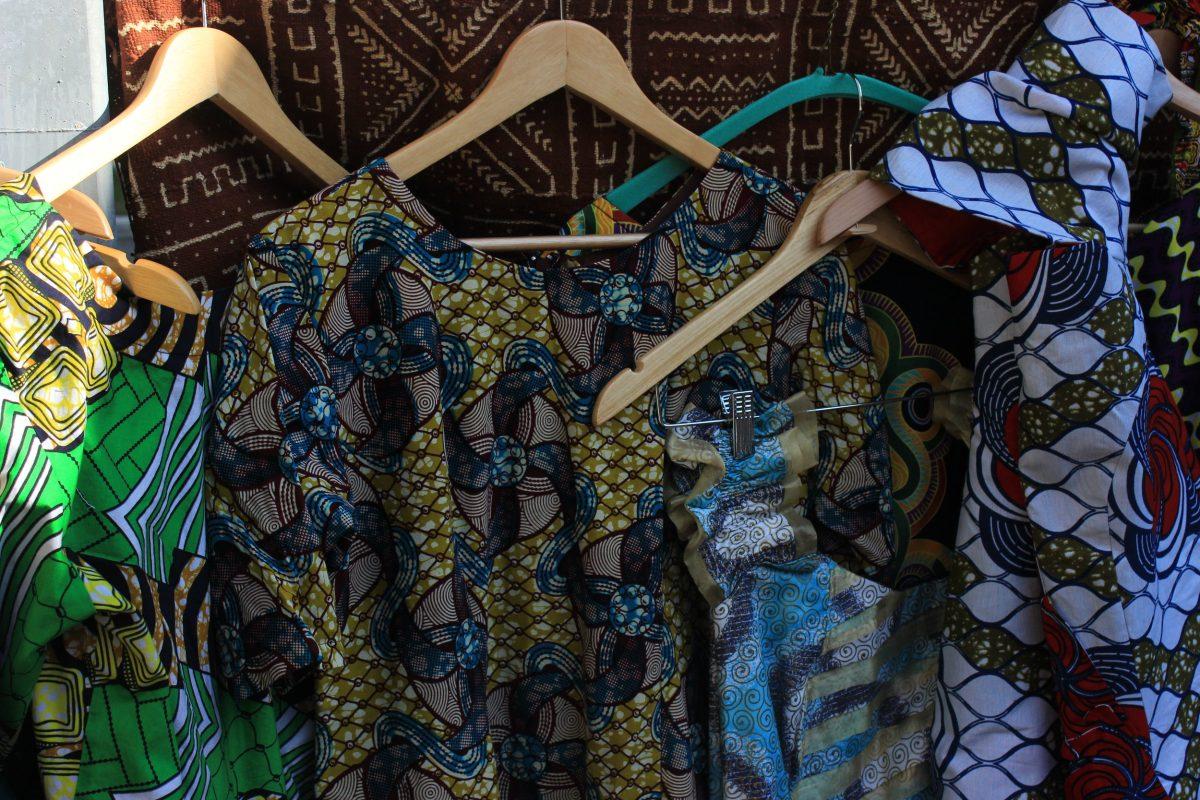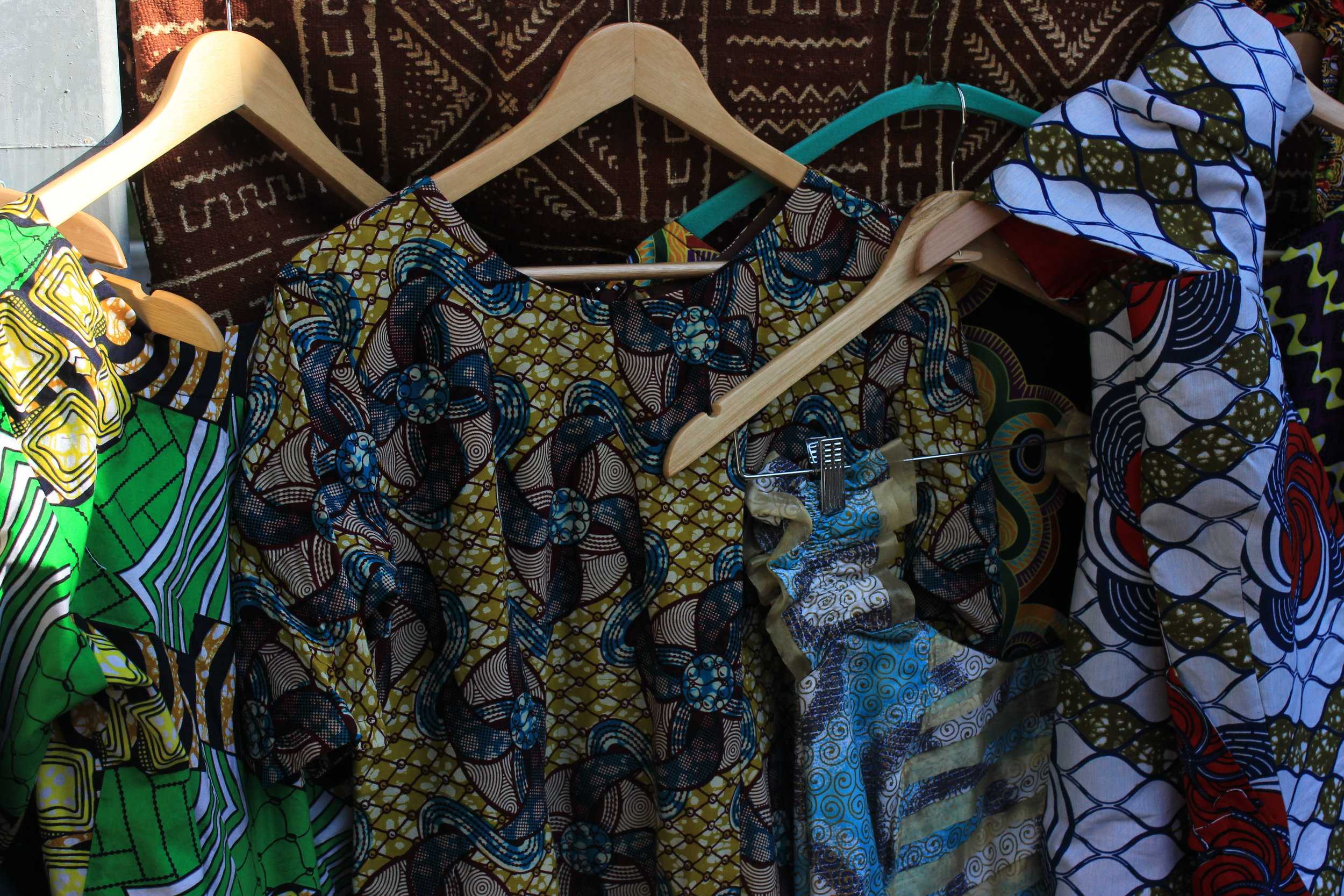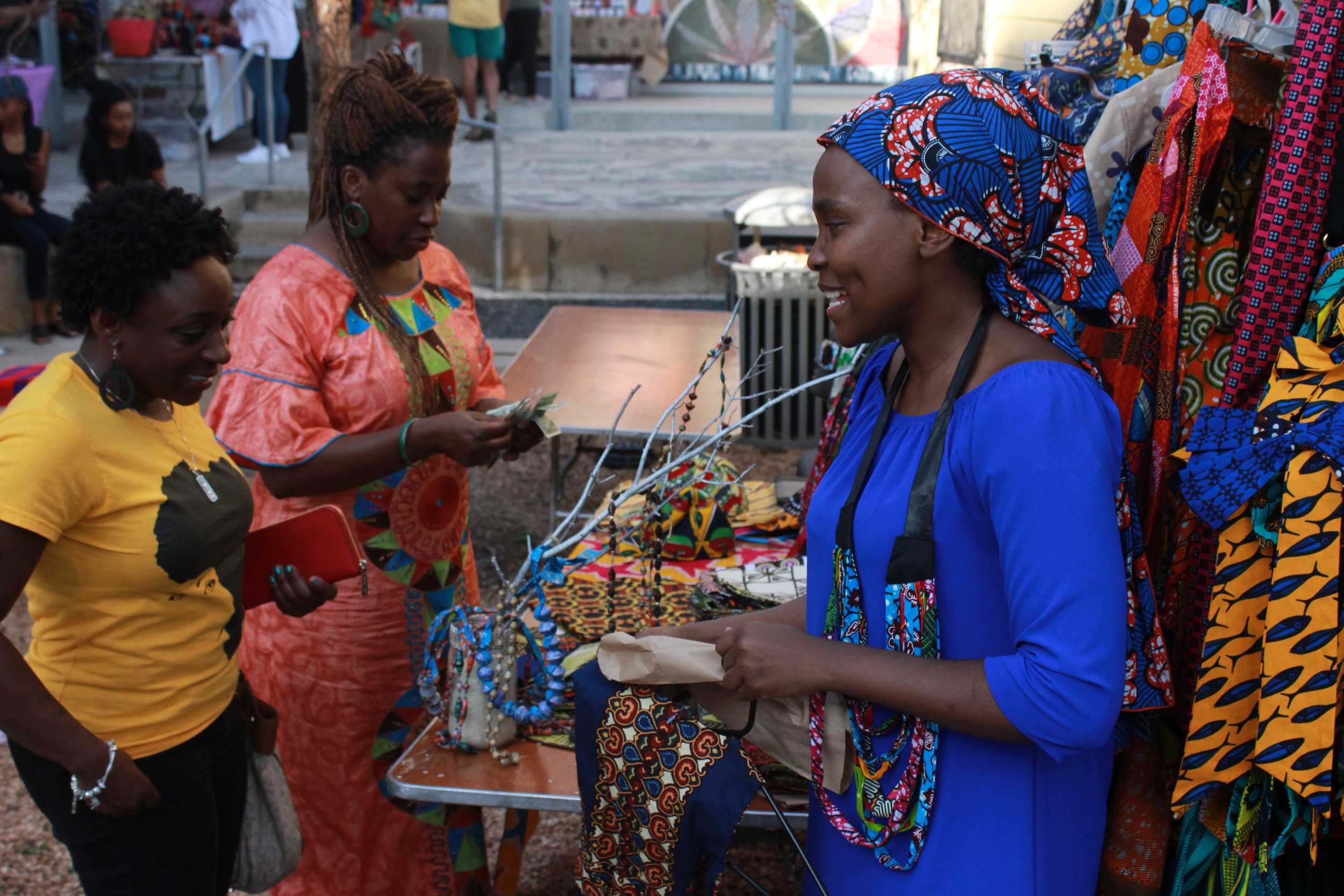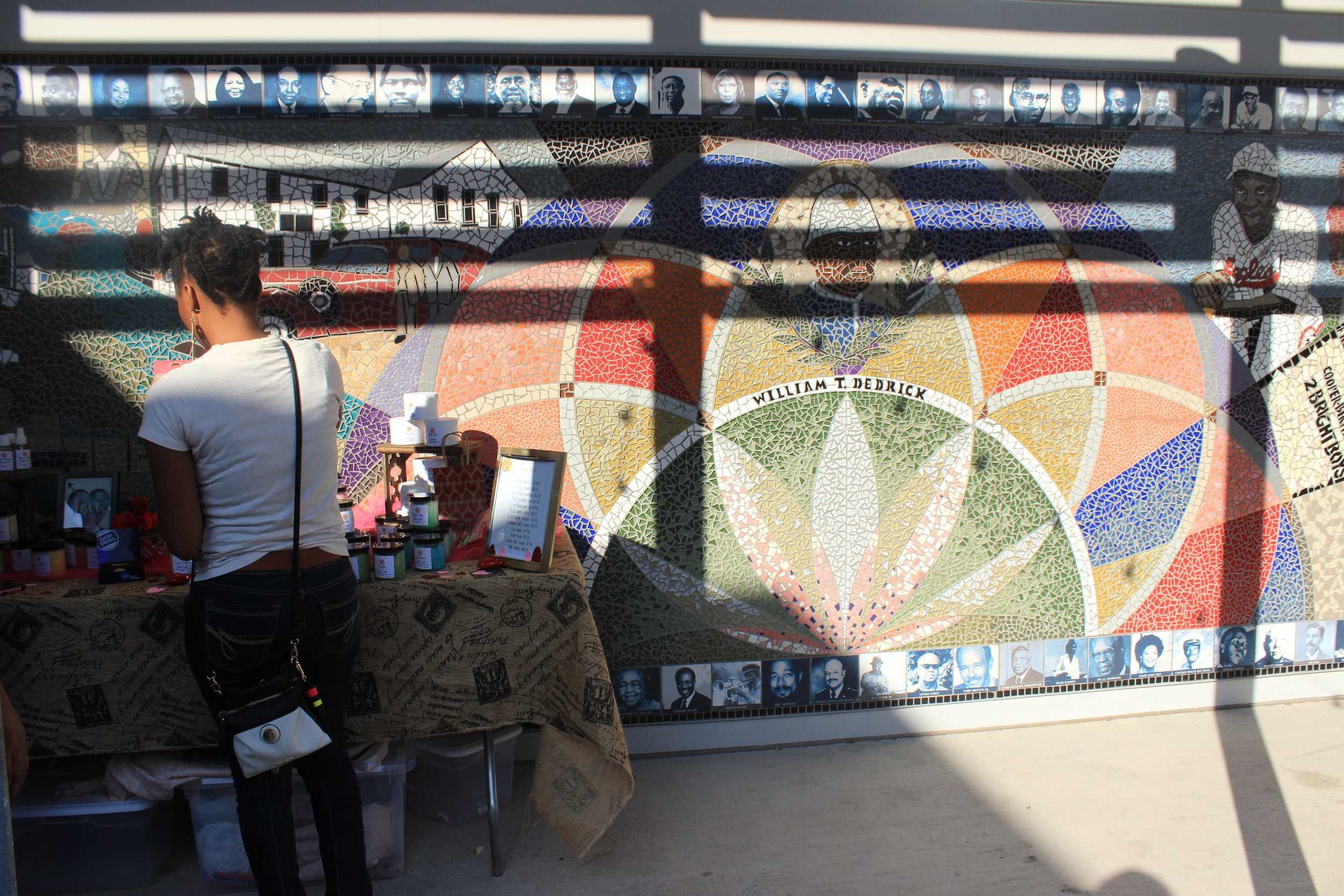Traditional Guinean dresses by Nimba Tra.
On Saturday, local Black business owners sold their handmade and ethically sourced clothing, jewelry and beauty products at the Black Makers’ Pop Up. The vendors set up shop at The Great Austin Black Chamber of Commerce.
By Rochelle Friedewald
A handful of tables showcased jewelry, traditional dresses and colorful purses with different patterns and details but with one thing in common—all products were made by Black businesses who are locally and ethically sourced. A handful of patrons wandered around the intimate event, which features 10 vendors from the Austin area. Most of the vendors were excited to tell the stories and cultures behind their vibrant clothing items.
Naima Safia Sandy, the event organizer, also spoke about the importance of being a conscious consumer. “We are using way too many resources, in a way that’s extremely detrimental,” saysid Sandy says. “ We definitely want to encourage people to think local and source local. It’s a small thing in theory, but it will have long term implications.”
Shayo of Shavante discusses custom making a dress to a customer’s daughter.
Fatoomata Traoewglouix, owner and founder of Nimba Tra, displayed dozens of custom-made dresses made from spools of thread she’ brought from Guinea. “The thread is hand dyed by the women in Guinea,” Traoewglouix says. “Each dress is very difficult to make by hand, and takes at least three weeks to finish from start to finish.”
She showed off a beautiful leather bag with a sacred African symbol embroidered its surface. “This is a Nimba, it represents fertility for a woman,” Traoewglouix says. “If she cannot bear children, she rubs it for good luck. This is what I’ve named my company after.”
Other vendors with close cultural ties to their products also made a statement about fashion and its impact on the community and the environment. Theodosia Shayo, a proud African businesswoman, is one of those creators. Her brand, Shavante, centers prints Africa and South America. She focuses on creating clothing and accessories that are ethical, and make a difference for women and children around the world. Her impact on the community includes more than her clothing line. Prior to her advocacy here in the U.S., she was a human rights activist and attorney in Tanzania. In addition to founding Shavante, she created the International Multicultural Festival, which focuses on promoting diversity within the community.
Lotions by K set up amidst artwork at Chamber of Black Commerce
Vendors also highlighted the impact their products had on the environment. “[Shavante] has started to venture into recycled fabrics,” says Shayo. “We use old/unused clothes and redesign.We are sensitive and care about the environment and [we’re] very much into using fashion to help out in making the world a better place.”
The stories and products featured at the Black Makers’ event highlight the diversity that exists within the Austin community, which is not given the platform it deserves. Sandy, who’s a curator and cultural anthropologist, spoke about the importance of the economic empowerment of black businesses. “With [growing] access to digital media, we become aware of instances of police violence and discrimination, that’s been happening, but we just had no present images of that until now,” Sandy says. “So when we talk about Black Lives Matter, as an ally, it’s important to support black business. If we look back in history, it’s very much a matter of systematic depression. It’s time for us to make a statement about where we are putting our dollars.”














































